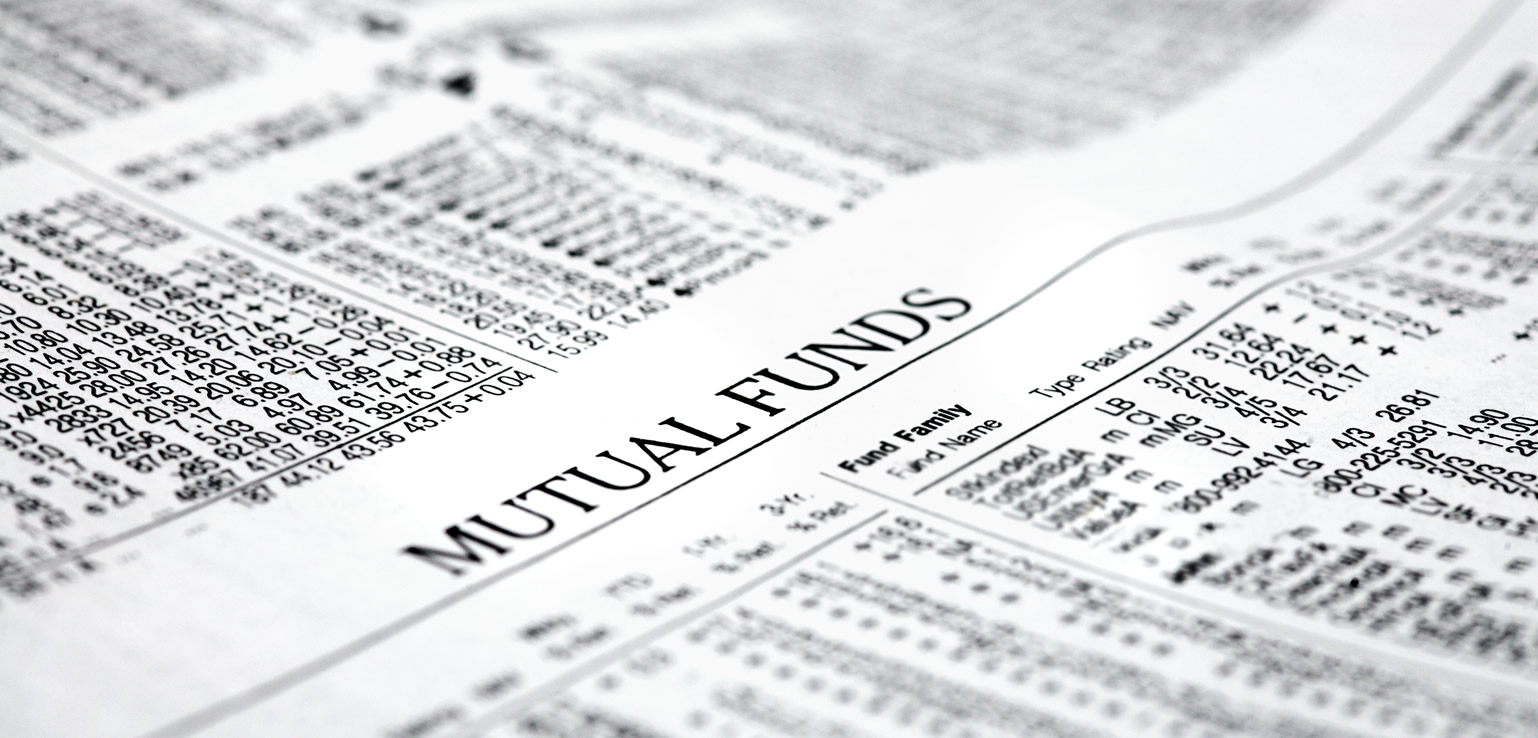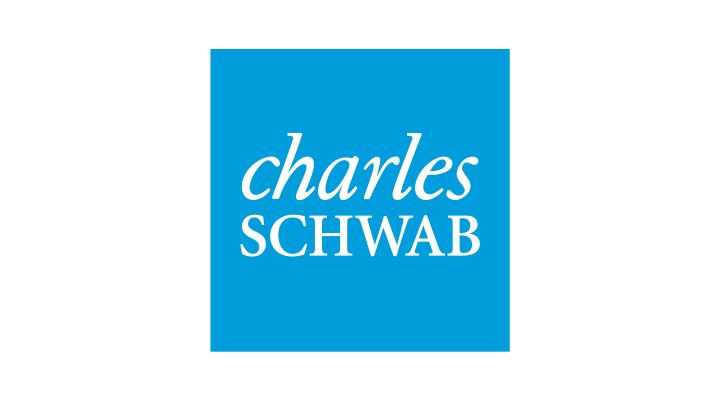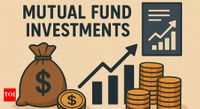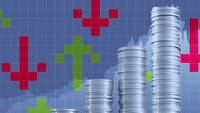Explore web search results related to this domain and discover relevant information.
Mutual funds pool the money of many investors, who buy shares of the funds, to purchase a range of securities to meet specified objectives, such as growth, income or both. They can offer built-in diversification and professional management but, like investing in any security, investing in a ...
Mutual funds pool the money of many investors, who buy shares of the funds, to purchase a range of securities to meet specified objectives, such as growth, income or both. They can offer built-in diversification and professional management but, like investing in any security, investing in a mutual fund involves certain risks.Investment companies can be structured as either open-end or closed-end funds—although most investment companies are open-end funds, known more commonly as mutual funds. One of the key distinguishing features of a mutual fund is that investors can buy and sell shares at any time.Since mutual funds can issue new shares and buy back old ones all the time, the number of shares and the dollars invested in the fund are constantly changing. That's why it makes more sense to compare mutual funds by looking at their total return over time rather than comparing their NAVs.Closed-end funds, which are a less common type of investment company, differ from open-end funds because they raise money only once in a single offering, much the way a company might raise money at its initial public offering (IPO). After the shares are sold, the closed-end fund uses the money to buy a portfolio of underlying investments, and any further growth in the size of the fund depends on the return on its investments, not new investment dollars.


First conceived in 1984, search funds — also known as "entrepreneurship through acquisition" — let individuals — or "searchers" — raise money from a small group of investors to buy and operate a small or medium-sized private company.
Meanwhile, search funds have also offered a risk-adjusted way for aspiring business owners to pursue their CEO dreams, such as Jackson, who, together with his friend Olaide Lawal, started their search fund in 2015. About 18 months later, the duo raised more than $5 million and acquired three dental practices from a dentist who was in his 50s. Over the next six years, Jackson ran Unified Dental Care as CEO and grew the company to seven locations before selling the business to a strategic buyer in 2023.But running a search fund isn't all smooth sailing. In fact, Jackson uncovered fraud two weeks into running the business: the seller had inflated revenue by millions. "We thought we were buying a $7 million revenue company and $1.5 million in EBITDA," said Jackson.Search funds are not a silver bullet. Besides dealing with rejection, searchers have to find a good business to buy, convincing the owner to entrust you with their life's work, and of course, learning how to run a business for the first time."They're the types of companies that if they drop what they do, it would really hurt," said Jon Staenberg, founder & CEO of Agate Hound Fund. Enter the next generation of entrepreneurs — millennials and Gen Zers — who are seizing this moment not by launching startups, but by buying companies through search funds.

News archive including articles on Fund Managers, Fund Selection, Asset Allocation, Absolute Return, Offshore Investments, Tax Shelters, Insurance bonds. The cheapest platform to buy funds, shares and a mix of both | Trustnet
While platforms can differ on the funds and share classes that are available, if someone can buy the same asset on multiple platforms, it is helpful to know where they’ll be charged the least.Keeping costs low is vital for investors, with every penny spent in charges eating into their returns. While many consider the costs of their funds, an important factor should also be the fees levied by their chosen platforms, as these can rack up quickly – particularly as the portfolio increases in value.On any pot above £15,000, iWeb emerged as the cheapest option for investors of all levels. The platform has a consistent pricing structure, charging investors the same fee for investing in funds, shares or a combination of the two.Care has been taken to ensure that the information is correct, but FE fundinfo neither warrants, represents nor guarantees the contents of information, nor does it accept any responsibility for errors, inaccuracies, omissions or any inconsistencies herein. Past performance does not predict future performance, it should not be the main or sole reason for making an investment decision.
You need a brokerage account when investing in stocks, but you have a few options with mutual funds. If you contribute to an employer-sponsored retirement account, such as a 401(k), there’s a good chance you’re already invested in mutual funds. You could buy directly from the company that ...
You need a brokerage account when investing in stocks, but you have a few options with mutual funds. If you contribute to an employer-sponsored retirement account, such as a 401(k), there’s a good chance you’re already invested in mutual funds. You could buy directly from the company that created the fund, but doing so will limit your choice of funds.You can also work with a traditional financial advisor to purchase funds, but it may incur some additional fees. Most investors opt to buy mutual funds through an online brokerage, many of which offer a broad selection of funds across a range of fund companies.Bond mutual funds, as the name suggests, invest in a range of bonds and provide a more stable rate of return than stock funds. As a result, potential average returns are lower. Bond investors buy government and corporate debt for a set repayment period and interest rate.Chasing past performance may be a natural instinct, but it often isn't the right one when placing bets on your financial future. Mutual funds are the cornerstone of buy-and-hold and other retirement investment strategies.

A purchase fund is a fund that is only used by the issuers to buy stocks or bonds when those securities have fallen below the original dollar amount assigned by the issuer. This type of fund can be beneficial to an investor in that if the fund is trading below par value, the company has to ...
A purchase fund is a fund that is only used by the issuers to buy stocks or bonds when those securities have fallen below the original dollar amount assigned by the issuer. This type of fund can be beneficial to an investor in that if the fund is trading below par value, the company has to pay par value to repurchase the bonds from the investors.The funds are repaid through periodic payments to a trustee who retires part of the issue by purchasing the bonds in the open market. Rather than the issuer repaying the entire principal of a bond issue on the maturity date, another company buys back a portion of the issue annually and usually at fixed par value or at the current market value of the bonds, whichever is less.A purchase fund is a financial mechanism that requires an issuer to buy a specified amount of securities when they fall below a stipulated price, typically par value.A purchase fund is used to buy securities when their value has fallen below the original dollar amount assigned by the issuer.
:max_bytes(150000):strip_icc()/investing5-5bfc2b8e46e0fb0026016f0e.jpg)
This international dividend powerhouse quietly delivered 26.6% returns this year -- more than doubling the S&P 500 while paying triple the income.
The U.S. dollar has strengthened significantly over the past decade, making foreign assets more affordable for American buyers. Any mean reversion in currency markets -- and currencies always mean revert eventually -- provides additional upside beyond the underlying stock returns. The 4.2% yield changes the entire risk equation. While growth investors need their stocks to rise just to make money, investors in this international Vanguard dividend fund collect 4.2% annually regardless of price movement.1 High-Yield Vanguard Dividend Fund to Buy Hand Over Fist was originally published by The Motley FoolThis isn't supposed to happen. High-yield dividend funds are supposed to be the tortoises in the investing race -- steady, reliable, boring. They're what retirees own, not what delivers market-crushing returns.Look inside this fund and you'll find the crown jewels of European and Asian business. Nestle represents 1.49% of the fund, running the world's largest food empire with 2,000 brands across 186 countries. HSBC Holdings sits at 1.45% of the fund's holdings, connecting Western finance to Asian growth through the world's seventh-largest bank.
You need to enable JavaScript to run this app

Vanguard 500 Index ETF is a solid choice if you have a long-term view, but go in with a clear understanding of where we are today on Wall Street.
However, if your plan is to buy this ETF and just keep adding to it through thick and thin, then even today, when the S&P 500 index looks expensive, could still be a good time to buy. Reuben Gregg Brewer is a contributing Motley Fool stock market analyst covering energy, utilities, REITs, and consumer staples. He is the former director of research at Value Line Publishing, where he rose from mutual fund analyst to equity analyst before leading all research operations.Vanguard 500 Index ETF's value on the last trading day of August was $593.08 per share. The price that the exchange-traded fund (ETF) traded for among investors was $592.70 per share. It is basically tracking along with the value of its portfolio, which is the value of index.But it also does it for a very attractive cost -- a 0.03% expense ratio. That's as close to free on Wall Street as you can probably get and lower than some of the other S&P 500 index alternatives. So if you want to track the S&P 500 index, then Vanguard S&P 500 index ETF could be a good buy for you right now.Thus, if the question is whether it is worth buying the S&P 500 index right now, you have to think about your Vanguard S&P 500 index ETF decision a little differently. History suggests you will be fine even if you buy today, assuming you hold for a very long time.
Find out what mutual funds are and how they may benefit your financial goals. Use resources from Schwab to start investing in mutual funds today.
Investing in mutual funds at Schwab gives you choices. We have tools to research, compare, and trade mutual funds all in one place.Schwab Asset Management™ is an experienced market leader in index mutual fund Tooltip Index mutual funds, also known as passive funds, are designed to track—rather than beat—a specific index, such as the S&P 500®. They can be a low-cost way to invest. management dedicated to keeping investor costs low.Access a variety of choices, funds from established providers, and research tools to help you find mutual funds that are right for you.Already have an account? Log in to explore funds.


Financial Literacy News: Higher-cost funds can outperform lower-cost options due to superior fund management. Investors should prioritize consistent returns and disciplined ri
A slightly more expensive fund that protects capital during downturns may be a far better long-term wealth builder than a cut-price fund that collapses when markets stumble.JioBlackRock Flexi Cap Fund is a new fund so there is no history to help the buyer decide.The direct plan of the Jio BlackRock Flexicap Fund that opens later this month has a total expense ratio of 0.5%. The fund house claims that its efficient execution processes would lower costs and potentially increase portfolio returns for investors. The logic seems simple: the lower the cost, the higher the returns for the investor.A fund with an expense ratio of 0.5% instead of 1% saves the investor 50 basis points annually. Over the long term, this compounding advantage can add up to a significant amount.But experts don’t agree with this line of reasoning. “Expense ratios do matter, but should not be the most important factor when choosing a fund,” says Raj Khosla, Managing Director of MyMoneyMantra.If a low-cost fund delivers 5% annualised returns while a higher-cost fund delivers 10%, an investor is far better off in the latter, despite paying more in fees,” he says.The critical metric is how well the fund manager deploys capital.
We cannot provide a description for this page right now
Due to a technical fault our full website is currently unavailable. You can still report issues to us, such as missed bins, and contact us online via My Account · You can also contact us on 01524 582000 from 9am until 4.30pm or out of hours on 01524 67099

The fund aims to strengthen Asia's network of bitcoin treasury firms, and has secured $200 million from investors in the region.
Sora Ventures announced what is says is Asia's first dedicated bitcoin treasury fund, with plans to buy $1 billion worth of BTC in the next six months.Investment firm Sora Ventures announced what it says is Asia’s first dedicated bitcoin BTC$110,953.91 treasury fund, with plans to buy $1 billion worth of the cryptocurrency in the next six months.Sora Ventures is setting up a bitcoin treasury fund.The fund will serve as a central pool of capital for strengthening Asia’s network of bitcoin treasury firms, the company said.

And index funds that focus on international stocks and bonds are becoming more popular, too. Why? Many argue that buying and holding the broad market (whatever that market may be) generates better results than trying to beat that same market through actively selecting securities.
One product isn’t better than the other; choosing the right wrapper depends on personal preferences. Investors who value trading flexibility or may have few dollars to invest might prefer an ETF, while those accessing index funds via a company-sponsored retirement plan are more than likely buying mutual funds.These top-rated Vanguard ETFs and mutual funds are excellent choices to buy and hold in 2024 and beyond.Looking for low-cost index funds to invest in? These mutual funds and ETFs earn Morningstar’s top rating.We’re also including a list of what we’re calling “specialized” index funds, which features top-rated low-cost index funds from investment categories that appear less frequently in the portfolios of most investors.
They're run by professional money managers who decide which securities to buy (stocks, bonds, etc.) and when to sell them. You get exposure to all the investments in the fund and any income they generate.
Mutual funds let you pool your money with other investors to "mutually" buy stocks, bonds, and other investments.Because a mutual fund buys and sells large amounts of securities at a time, its transaction costs are typically lower than what you would pay as an individual investor.Buying mutual funds can be straightforward.A load is a one-time commission some fund companies charge whenever you buy or sell shares in certain load-based mutual funds.

2. The Fund Evaluator is provided to help self-directed investors evaluate mutual funds based on their own needs and circumstances. The criteria entered is at the sole discretion of the user and any information obtained should not be considered an offer to buy or sell, a solicitation of an ...
2. The Fund Evaluator is provided to help self-directed investors evaluate mutual funds based on their own needs and circumstances. The criteria entered is at the sole discretion of the user and any information obtained should not be considered an offer to buy or sell, a solicitation of an offer to buy, or a recommendation for any securities.Browse through 10,000 funds from dozens of different mutual fund companies with Fidelity.Fidelity's FundsNetwork allows you to invest in mutual funds from hundreds of fund companies outside of Fidelity, including many available with no transaction fees.1 Explore your financial options by searching through our world class library of funds.The Fidelity Total Bond Fund is an actively managed fixed income strategy investing in a broad spectrum of investment-grade securities with up to 20% in below investment grade sectors such as high yield corporates, emerging-market debt, and leveraged loans.

Index funds are investments that mirror specific market indexes, such as the S&P 500 or the total stock market. Think of them as buying a slice of the entire market rather than trying to pick individual winning stocks. So, when you invest in an S&P 500 index mutual or exchange-traded fund, ...
Index funds are investments that mirror specific market indexes, such as the S&P 500 or the total stock market. Think of them as buying a slice of the entire market rather than trying to pick individual winning stocks. So, when you invest in an S&P 500 index mutual or exchange-traded fund, you're gaining exposure to America's 500 largest companies, from Apple Inc."It takes discipline to continue to buy investments during a market downturn, but a shift in mindset can help—rather than fearing financial loss, an investor can reframe as buying stocks 'on sale.'" The combination of market-matching returns, minimal fees, and the power of compounding make index funds historically one of the most reliable paths to building wealth.Since index funds consistently beat active management over the long-run, they are often a more viable option for retirement saving success.Indeed, low-cost index funds have emerged as a powerful tool in pursuing financial independence, offering a straightforward path that combines simplicity, diversification, and a proven track record of superior performance.
You don’t have to keep track of every security your mutual fund owns. The fund is managed by experts who take care of that for you. ... You can buy and sell mutual fund shares online and set up automatic investments and withdrawals.
You must buy and sell Vanguard ETF Shares through Vanguard Brokerage Services (we offer them commission-free online) or through another broker (who may charge commissions). See the Vanguard Brokerage Services commission and fee schedules for limits. Vanguard ETF Shares are not redeemable directly with the issuing Fund other than in very large aggregations worth millions of dollars.You'll often see the phrase "mutual funds trade at NAV" or the word "NAV" when you research mutual funds. NAV stands for net asset value—it's the price per share that you buy the mutual fund for.Discover mutual funds: pooled assets investing in stocks, bonds, and securities. Build your legacy with high-quality, low-cost mutual funds from Vanguard.Build your legacy with high-quality, low-cost mutual funds that fit your needs.
Vanguard 500 Index ETF is a solid choice if you have a long-term view, but go in with a clear understanding of where we are today on Wall Street.
Is the Vanguard 500 Index Fund ETF a Buy Now?Vanguard 500 Index ETF's value on the last trading day of August was $593.08 per share. The price that the exchange-traded fund (ETF) traded for among investors was $592.70 per share. It is basically tracking along with the value of its portfolio, which is the value of index.But it also does it for a very attractive cost -- a 0.03% expense ratio. That's as close to free on Wall Street as you can probably get and lower than some of the other S&P 500 index alternatives. So if you want to track the S&P 500 index, then Vanguard S&P 500 index ETF could be a good buy for you right now.Thus, if the question is whether it is worth buying the S&P 500 index right now, you have to think about your Vanguard S&P 500 index ETF decision a little differently. History suggests you will be fine even if you buy today, assuming you hold for a very long time.

Index mutual funds and ETFs may hold similar stocks but have differences when it comes to trading, taxes and ease of dollar-cost averaging.
An investor considering a purchase of an S&P 500 fund should understand that their holdings are all nearly identical. That means an investor's return should also be nearly identical, says Danny Smyth, managing director of the East Coast division of Los Angeles-based HCR Wealth Advisors. Smyth points out that investors have the option of buying an exchange-traded fund or a mutual fund."Another consideration is that ETFs provide more trading flexibility than a traditional mutual fund," Smyth says. "ETFs trade throughout the day on the stock exchange just like individual stocks, allowing for immediate buying and selling of shares and the ability to react quickly to market movement.""For investors building wealth through regular contributions, FXAIX is one of the easiest ways to stay disciplined," Cabuto says. "Mutual funds are purchased in dollar amounts, and you can buy fractional shares.After Sept. 22, Robinhood, AppLovin and Emcor will be components of S&P 500 index funds, although in the market capitalization-weighted index, they'll be much smaller components relative to S&P 500 giants like Nvidia Corp. (NVDA), Microsoft Corp. (MSFT) and Apple Inc.


:max_bytes(150000):strip_icc()/investing5-5bfc2b8e46e0fb0026016f0e.jpg)
